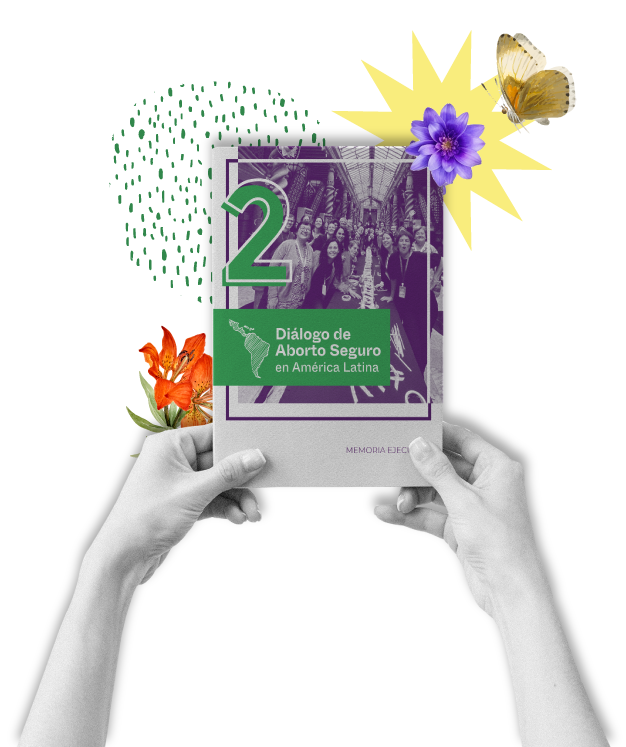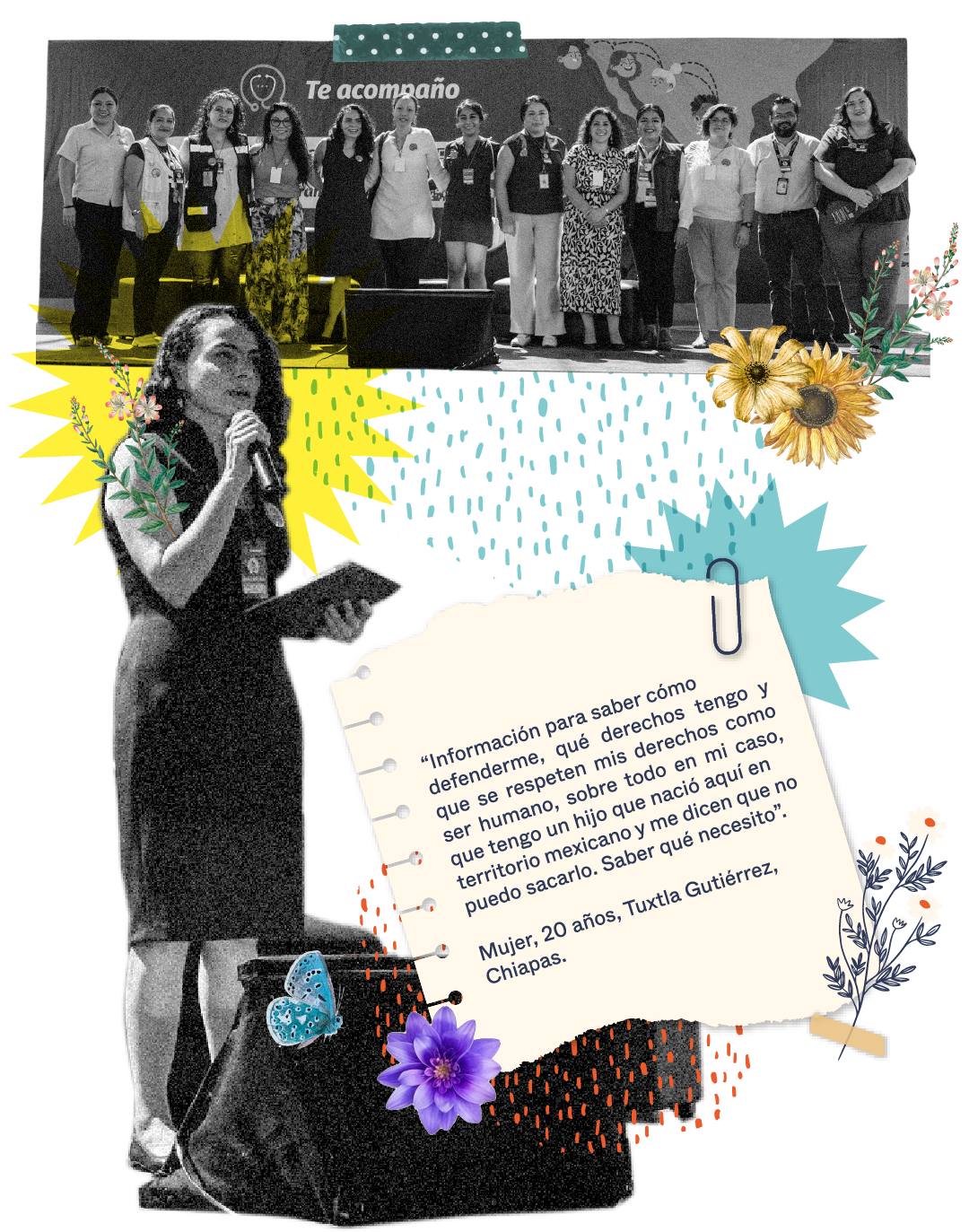
In the sustainable abortion ecosystem, social norms are free of abortion-related stigma and discrimination, which supports people's ability to exercise their sexual and reproductive rights (SRR). At Ipas LAC, we work in partnership with civil society organizations to strengthen their capacities, promote accountability of those who guarantee these rights, and encourage the creation of social norms free of stigma and discrimination.
In 2023, partnerships were key to moving in this direction and, as a result, the following was achieved:


We held the Second Safe Abortion Dialogue in Latin America. The event brought together representatives from 37 CSOs and 9 donors from 20 countries. During this meeting, we discussed, reflected and dialogued around four key areas: funding; strengthening access pathways; integrating advocacy and accountability efforts; and neutralizing opposition. The objective was to identify key challenges and opportunities to strengthen the safe abortion agenda in the region.

We participated in the VII Regional Conference of the Latin American Consortium Against Unsafe Abortion (Clacai), Persisting in Change: Abortion is Our Rightwhich brought together more than 400 researchers, health professionals and representatives of civil society organizations. Ipas LAC played an important role in leading collaborative processes and presenting relevant content in plenary sessions, roundtables, workshops and parallel panels. Our team of experts in the clinical, legal, communications and supply management fields shared valuable knowledge, which promoted a fruitful dialogue about the abortion ecosystem in Latin America.
We collaborated with 50 CSOs and 23 networks of accompaniers in Central America, Mexico and South America to implement local strategies aimed at: demanding the guarantee of women's SRHR, strengthening comprehensive sexuality education (CSE), informing the community of the different ways to access SRH services, strengthening the capacities and links of the networks that accompany women in abortion situations, and carrying out actions to prevent and address gender-based violence. This has allowed CSOs to strengthen links among themselves, broaden their impact and meet the needs of a diversity of women, youth, indigenous women, migrants, Afro-descendants, among others.


Through all the actions carried out by CSOs and networks, we reached 105,769 people, who now have information that allows them to decide where, how and when to seek the SRH and safe abortion services they need. We also distributed a total of 153 CSE kits to partner organizations. In addition, we were able to strengthen the skills and knowledge of 263 members of these organizations by sharing tools, methodologies and resources needed to more effectively develop their activities in the field of reproductive health.
We achieved the active participation of 9 community-based organizations, 3 government agencies and more than 50 migrant women in the validation of the contents of the chatbot Te acompaño, through our User-Centered Design (UCD) methodology.
Regarding our strategy of collaboration with networks of accompaniers, in 2023, we contributed to the organization of the Central American Meeting on Mental Health and Abortion in Guatemala, with the participation of 34 women, including psychologists and accompaniers from the Central American networks. The purpose of this meeting was to provide them with tools for emotional management during the abortion accompaniment process. As a result of this space, the first Central American Network of Accompanying Psychologists was formed, composed of 15 health professionals who are active members of the networks.

We also continued with updating and strengthening processes for 28 people from 7 escort networks in Central America. With them, we reviewed topics such as the process of care for late-term abortions and the strengthening of security measures through the use of secure platforms and strategic alliances with related networks.
Given the restrictions on abortion in the U.S., we support the expansion of accompaniment networks through training processes in several states, which allow the reduction of risk for people in abortion situations. On the Mexican side, we provide support to cross-border networks that offer information and manage resources to assist women and people with gestational capacity in a situation of migration.
Download the annual report in PDF:
